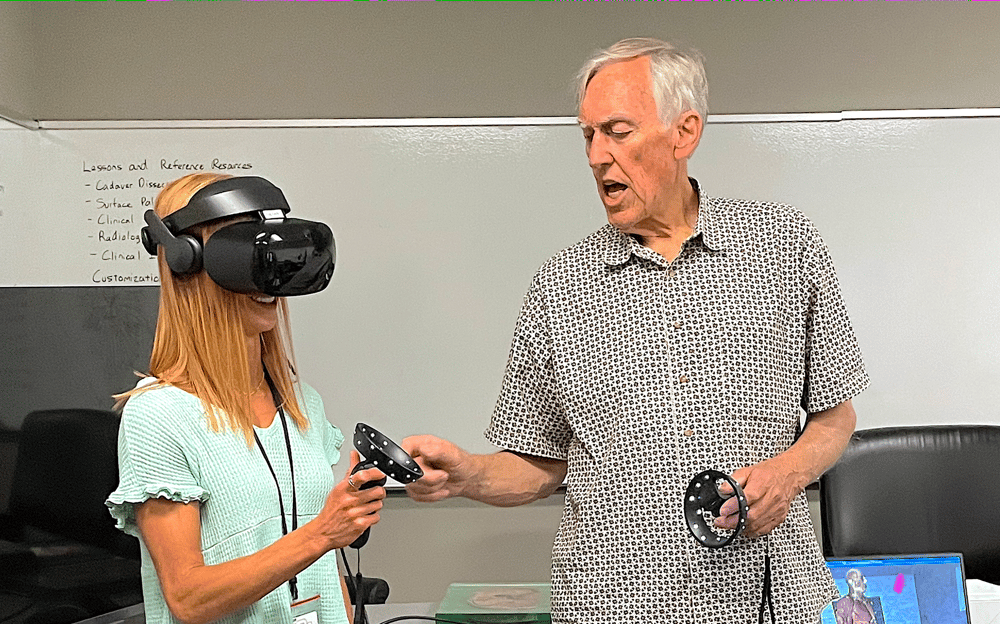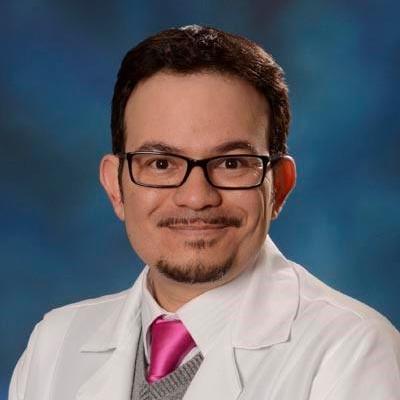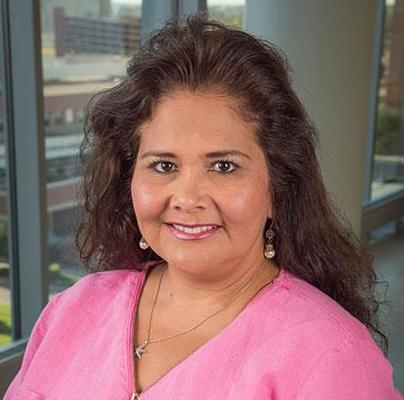When you ask a classroom full of middle schoolers what they want to be when they grow up, you’re likely to get a range of answers, from “pro athletes” and “astronauts” to “musicians” and “movie stars.”
The leadership at the CU Cancer Center’s Cancer Research Training and Education Coordination (CRTEC) program hopes to add “cancer researcher” to that list.
Helmed by Associate Director Eduardo Davila, PhD, a professor of medicine in the Division of Medical Oncology, and Assistant Director Adela Cota-Gomez, PhD, CRTEC aims to educate and train the next generation of cancer clinical researchers and scientists.
But first, they must find them.
To that end, Davila and Cota-Gomez have been busy establishing new initiatives — and supporting existing programs — aimed at reaching future cancer-care professionals, starting as young as middle schoolers, and ranging up to junior faculty members.
“My interest has always been to provide opportunities for people to see all the options out there in terms of medical careers, especially academic medical careers,” Cota-Gomez says. “When young people say, ‘I’m going to be a doctor,’ they’re usually only thinking about being in an office or hospital treating patients. I was one of those kids, and it wasn’t until I got to college that I realized there were so many research options. There’s an entire world of possibilities within medicine.”
Creating childhood interest in cancer research
For middle and high school students, CRTEC often partners with state and local schools to introduce cancer research to students as a future career option. For instance, in 2020, scientists at the Anschutz Medical Campus began pairing with science educators at the nearby Aurora Science & Tech Middle School. The program is supported by a federal grant funded by the National Cancer Institute.
“What’s novel about this program is that we’re bringing in the teachers to develop new curricula for their students so they can introduce them to cancer research in the classroom,” Davila says. “Then, during the summer, we bring both the students and the teachers onto our campus and provide them with a hands-on, immersive research experience.”
Another event, called Learn About Cancer Day, occurs each February and is aimed at local high school students. The day-long event includes short lectures on multiple aspects of cancer care and research, along with tours of CU Cancer Center research labs and Q&A sessions with technicians, graduate students, and faculty members.
Fostering future scientists
CRTEC also offers programs for undergraduate and graduate students interested in entering the field of cancer research. One of the biggest is the Cancer Research Experience for Undergraduates (CREU). Every summer, 30 undergraduate students are given the opportunity to spend 10 weeks in cancer research laboratories.

A student tries out virtual reality software during CREU's 2021 Clinical Translational Workshops.
In addition to its own programs, CRTEC co-sponsors undergraduates in broader summer internship programs on the Anschutz Medical Campus (such as the Gates Summer Internship Program (GSIP) and the RNA Bioscience Initiative (RBI) Summer Internship Program) when the students choose to intern in labs run by Cancer Center members.
Last year, with backing from the CU School of Medicine, Davila established a pilot program aimed at recent graduates from traditionally underrepresented backgrounds called the Post-Baccalaureate Research Education Program (PREP). The one-to-two-year mentored research program allows students to conduct full-time research in CU Cancer Center labs at the same time they’re beginning their applications for PhD or MD-PhD programs. Davila is hoping to secure grant funding to expand the program and make it a permanent fixture of CRTEC.
“The idea is to attempt to fill the very big void that exists when it comes to underrepresented people advancing into higher education programs, medical school, and PhD programs,” Davila says. Both he and Cota-Gomez emphasize that initiatives at increasing diversity within cancer-related fields are essential.
"We’re still very far from having our clinical teams be as diverse as the people we serve,” Cota-Gomez says. “And the same is true for research. When I go into the community, people sometimes don’t believe I’m a researcher, because they’ve never met a Mexican, female scientist. But it’s a fact that diversity drives innovation and pushes research forward.”
Focusing on retention
Davila says his role isn’t just about creating pipelines to recruit future talent — it’s also about retaining the talent we already have, both on campus and in the cancer-research field in general. One way CRTEC and the CU Cancer Center are doing that is by offering mentorship to junior faculty members.
“When someone is in the very early stages of their career and they’re interested in cancer research, we embed them into our program as a mentored member,” Davila explains. These mentored members receive additional training and networking opportunities (including an annual retreat) to help them advance their research goals and navigate academia.
"The need for support doesn’t stop once someone gets their MD or PhD,” Cota-Gomez says. “I just talked with a postdoc who is considering faculty positions, but she’s scared because she doesn’t know the first thing about starting a lab. That training has never been formalized, but it’s the kind of thing you need to know to be successful and stay in the career long term. That’s the kind of support and training that we want to provide these mentored members.”
Feature image: Students practice surgical techniques during CREU's 2021 Clinical Translational Workshops.





